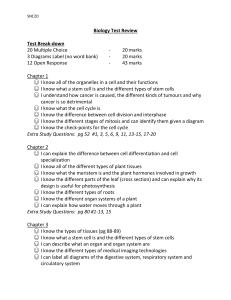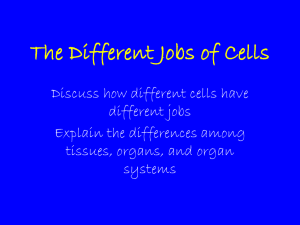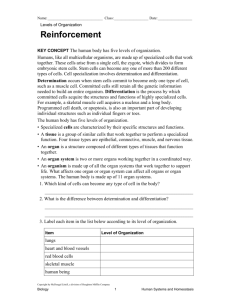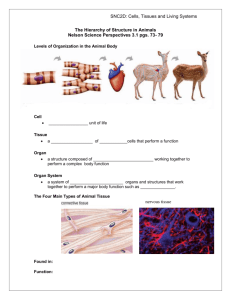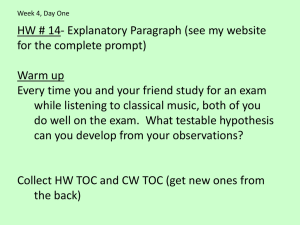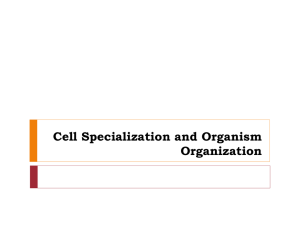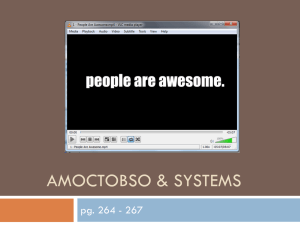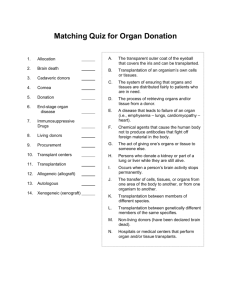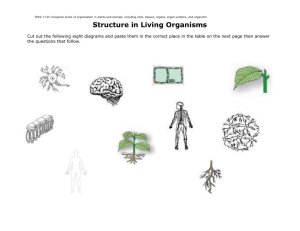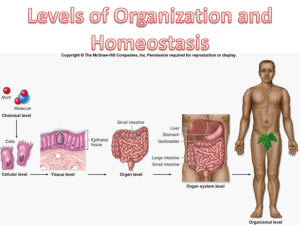Cell Diversity
advertisement
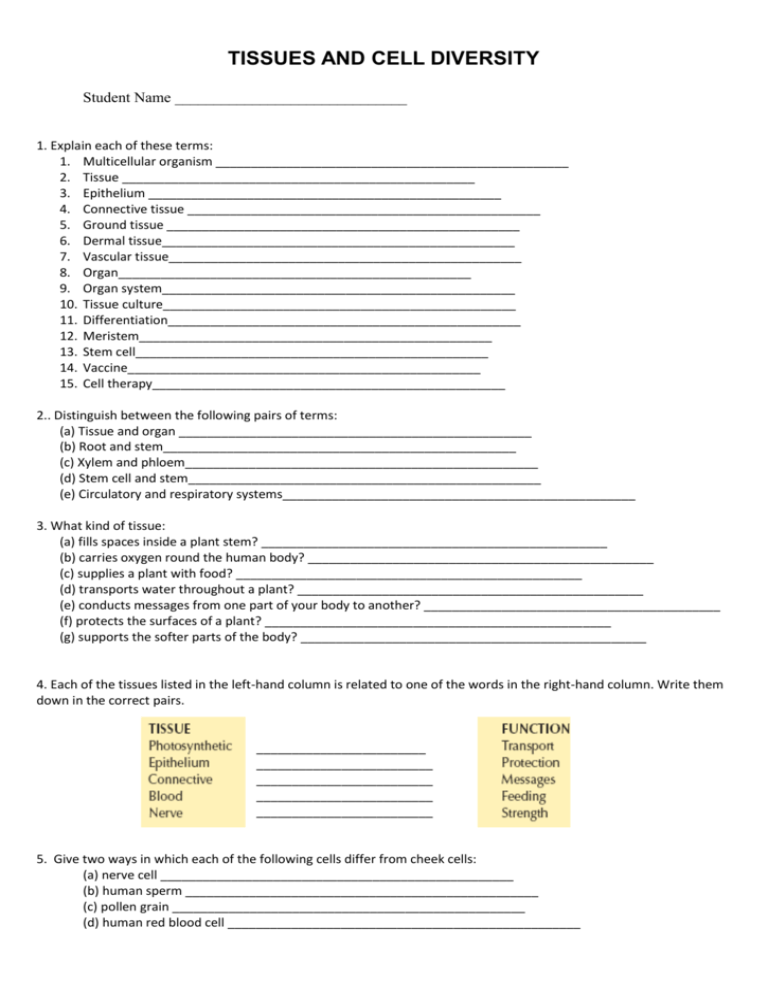
TISSUES AND CELL DIVERSITY Student Name ______________________________ 1. Explain each of these terms: 1. Multicellular organism __________________________________________________ 2. Tissue __________________________________________________ 3. Epithelium __________________________________________________ 4. Connective tissue __________________________________________________ 5. Ground tissue __________________________________________________ 6. Dermal tissue__________________________________________________ 7. Vascular tissue__________________________________________________ 8. Organ__________________________________________________ 9. Organ system__________________________________________________ 10. Tissue culture__________________________________________________ 11. Differentiation__________________________________________________ 12. Meristem__________________________________________________ 13. Stem cell__________________________________________________ 14. Vaccine__________________________________________________ 15. Cell therapy__________________________________________________ 2.. Distinguish between the following pairs of terms: (a) Tissue and organ __________________________________________________ (b) Root and stem__________________________________________________ (c) Xylem and phloem__________________________________________________ (d) Stem cell and stem__________________________________________________ (e) Circulatory and respiratory systems__________________________________________________ 3. What kind of tissue: (a) fills spaces inside a plant stem? _________________________________________________ (b) carries oxygen round the human body? _________________________________________________ (c) supplies a plant with food? _________________________________________________ (d) transports water throughout a plant? _________________________________________________ (e) conducts messages from one part of your body to another? __________________________________________ (f) protects the surfaces of a plant? _________________________________________________ (g) supports the softer parts of the body? _________________________________________________ 4. Each of the tissues listed in the left-hand column is related to one of the words in the right-hand column. Write them down in the correct pairs. ________________________ _________________________ _________________________ _________________________ _________________________ 5. Give two ways in which each of the following cells differ from cheek cells: (a) nerve cell __________________________________________________ (b) human sperm __________________________________________________ (c) pollen grain __________________________________________________ (d) human red blood cell __________________________________________________ 6. Match each organ in the left hand list with the correct system from those listed on the right. ________________________ _________________________ _________________________ _________________________ _________________________ _________________________ 7. Here is a list of organs of the human body and their functions. Match each organ to its correct function. 1 2 3 4 5 6 7 8 9 8. Name two organs in the human body which occur in pairs and two which occur singly. __________________________________________________ __________________________________________________ Why is it an advantage to have pairs of organs rather than single ones? _________________________ _____________________________________________________________________________________________ 16. The diagrams below show four cells, some from animals and some from plants. (a) Identify each cell and give its function. A = ________________________________________________ B= ________________________________________________ C = ________________________________________________ D = ________________________________________________ (b) Give one feature that is shown by all four cells. ________________________________________________ (c) Give one feature, apart from shape, which is shown by cell B but not shown by the other three cells. __________________________________________ (d) Which of the cells can move by themselves? ____________ (e) Which of the cells is haploid? Why? ___________________ ________________________________________________
